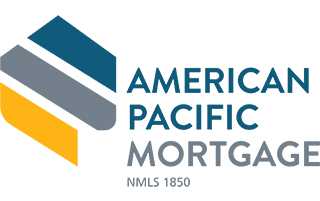Upfront Costs with Buying a Property in California?
The single number that most people focus on when buying a home or property in California is the listed selling price. There is, however, a considerable amount of money associated with fees and expenses, to arrive at the final sales figure to close a deal. It’s here, in these costs, that a buyer can end up spending an additional 2 to 6 percent above the originally stated sales price.
Understanding Your Fees
Closing charges are oftentimes some of the most misunderstood fees and expenses in real estate transactions. Some are flat fees and some are negotiable, but it is up to the buyer to do his or her homework. The seller has no obligation to teach the buyer the ropes.
Down Payment & Earnest Money Deposit
Known in the old days as having “skin in the game,” the down payment is a cash portion of payment the buyer has to put into a sales transactions from his or her own money. It cannot come from a primary mortgage, which will otherwise finance a home purchase.
Traditionally, this figure has been pegged at 20 percent of a home’s listing sales price, but in reality the down payment can be as low as 3 to 5 percent with some government financing programs. In other cases, there are second loans that cover the down payments, so that a home can be financed 100 percent.*
Explaining Your Earnest Money Deposit
Earnest money, on the other hand, is a deposit put forward to show one’s interest in a purchase is serious. A seller can lose a lot of value in a home waiting for a buyer to follow through on a purchase. To make sure the seller is not hurt by passing up other buyers, the seller requires a deposit, usually $1 – $2,000 or similar, to tie up a home for a pending sale. If the buyer goes forward, the deposit is applied to the sale and if the buyer falls through, the deposit could possibly be kept as non-refundable.
How You Could Lose your Deposit?
It’s important to note that most deposits today are generally refundable. Where the non-refundable status comes into play is when a buyer chooses to have contingencies removed from the sales agreement. When it does occur, losing a non-refundable deposit on a home sale is usually due to not following through on a purchase. That can happen due to a variety of reasons including problems with requirements of the sale or the buyer just plain quits the sale due to cold feet.
If You Can’t Get Financing in Time
The second most common way people lose their deposit is not being able to secure an approved mortgage loan. This can happen when a person’s credit is poor or the lender doesn’t want to take a risk on the given property. In many cases the lender decides the property isn’t worth what the sales price would require for financing, so the loan is denied, usually based on a negative appraisal.
If You Get “Cold Feet”
Some folks just plain get the jitters going into a home sale. Something doesn’t feel right, the paperwork goes awry, or they change their mind. Either way, the seller is not willing to make allowances for the situation and will simply keep the deposit for the trouble caused.
Explaining Your Down-Payment
Traditionally, the down payment has been described as 20 percent of the home sale price. For example, if a home sells for $200,000, the down payment would be $40,000.* In reality, however, few people have 20 percent of a home price in cash to put down. So, the minimum many times tends to be between 3 to 5 percent of a sales price.* This would make the same home in our example above require a down payment of $6 – $10,000.* So, in essence, the homeowner has to come up with a down payment upfront or use a second loan to produce the same funds for the original sale and mortgage. Note, again, 5 percent is not the rule; in a few government programs like FHA, home loans, and with some private competitive conventional loans, the down payment could be lower, closer to 3 percent. Additionally, a Veteran’s Administration home loan has no down payment requirement at all.
Other Costs & Fees
There is a portfolio of additional fees and transaction costs every buyer in California has to face, and most are charged upfront during a home purchase. Sometimes who pays these fees is negotiable, but it depends on the nature of the current real estate market. These include:
- Home loan origination fees – these are administrative charges lenders require for providing a loan to an applicant. They are typically a fixed amount that won’t fluctuate due to the home sales price.
- Title insurance – to make sure that title documents are clear of problems and that there are no other claims to a home title, a title inspection and protection is put in place while the home is in transfer status.
- Escrow fees – because real estate transactions involve title, land, and large amounts of money, the law in California requires a third-party escrow agent handle the sale exchange to make sure both parties get everything they committed to. The escrow agent handles the documentation, sale, payment processing, and exchange of title and closes the sale when all conditions are met. A fee is charged for this service.
- Property taxes – to make sure a property is paid up in full for taxes for the first year a sale occurs in, property taxes will be collected ahead of time and paid by the buyer for the time period he owns a home in the partial year during a sale.
- HOA fees – some properties are in homeowners’ associations, which can put a lien on a home and force its sale if HOA fees are not kept current. So, the fees for the first year will be collected to avoid this risk.
- Credit report check – As a part of the valid sales vetting process, a buyer will have to pay for a credit report pulled on him or her to make sure that there are no past financing problems.
- Documentation preparation fees – Just about every document in a sale has to be prepared in a certain way which generates work. Lenders, sellers and escrow agents will all charge fees for the paperwork to be taken care of and made ready for signature.
- Pest and mold inspection – Nobody wants to buy a home infested with problems, so an inspection certifies the home is clean, but the buyer will pay for the inspection fee.
- State recording fees – local government requires set fees to be paid whenever there is a title change on a property, and a buyer will be on the hook for these charges.
Home Inspection
Whether a home is new or old, a buyer should always get a home inspection. This assures that everything is in good condition and meets required structural and residential codes. Where there are problems, the inspection report will identify them, and the buyer can then require the seller to fix them before the sale escrow is closed. An inspection fee is typically a couple hundred dollars and the buyer will pay the charge.
Appraisal
Due to the lender using a home as collateral for a mortgage, an appraisal will be required to confirm the home is worth the loan being financed. This review is a key factor in the success of a home sale, and it also tends to set the overall home value at the end of the sale. The lender will require the appraisal and the buyer typically pays the fee if the seller doesn’t cover it.
Conclusion
Again, not all fees are automatically on the buyer; they can be negotiable, and sellers frequently cover many fees in a tough market when buyers are hard to bring in. However, in a hot market homebuyers can expect they will get hit with the majority of fees that have to be paid upfront to make the sale a success. Because there are so many charges, the buyer should always request a list and check to see every fee has been identified before committing to a sale.
The views, articles, postings, and other information listed on this website are personal and do not necessarily represent the opinion or the position of American Pacific Mortgage Corporation or US Lending Company.
* For loan examples and more information visit our disclosure page at https://www.uslendingcompany.com/disclosures/





